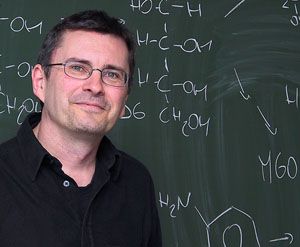What's unique about manuka honey?
Wednesday 8 February 2012, 11:46AM
By Manuka Health New Zealand
767 views
World expert to give NZ lectures on new manuka honey research
The German scientist who discovered the compound in manuka honey responsible for its anti-bacterial properties is to give two lectures in New Zealand on his group’s latest research.
The visit of Professor Thomas Henle, a world-leading food chemist at the Institute of Food Chemistry, Technical University of Dresden, is being sponsored by Manuka Health New Zealand.
He will give two lectures only, the first at the University of Waikato on Monday, February 20 and the second at the University of Auckland on February 22. His lecture is entitled, “Glycation compounds in food: What’s unique about New Zealand manuka honey?”
Glycation reactions are responsible for the colour and flavour of foods.
His group has identified further unique features of compounds in manuka honey and other foods. The research findings, which are due to be published early this year, will be discussed publicly for the first time.
Following the lectures, question and answer sessions will be chaired by Professor Peter Molan, Director of the Honey Research Centre at the University of Waikato, and by Professor Laurie Melton of the School of Chemical Sciences, the University of Auckland.
Professor Henle’s group identified the chemical compound, methylglyoxal in 2006, establishing that the honey’s anti-bacterial activity is directly related to methylglyoxal levels.
Following the discovery, Manuka Health New Zealand led the way in developing an accurate testing regime to measure methylglyoxal levels in manuka honey. It is the only company worldwide to market manuka honey with certified levels of methylglyoxal.
Professor Henle’s 24-year research career has focused on reactions during food processing, particularly protein and carbohydrate modifications. He is the author of more than 125 papers in peer-reviewed journals, nine patent applications and has appeared in at least 180 other publications.
He holds many prestigious posts, including President of the German Society of Food Chemistry, Editor-in-Chief of major food chemistry journals and member of the Scientific Advisory Board of the Federal Bureau of Risk Assessment.
